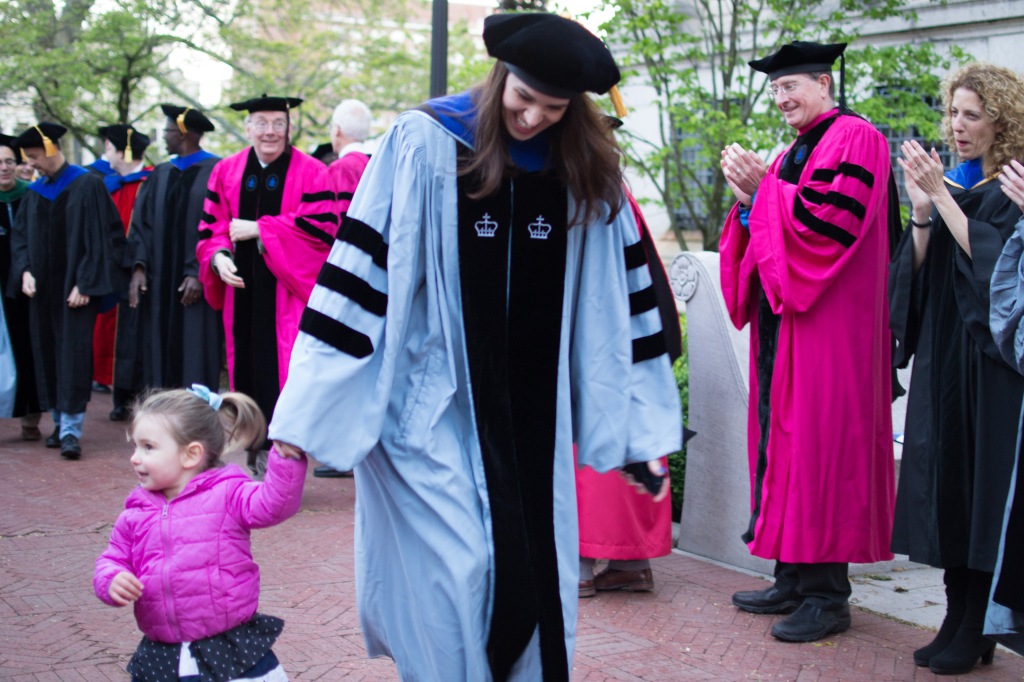When we think about our professors, we usually think of them as “my cell biology professor” or “my professor who gives too much homework” or maybe even “my professor who uses bad memes in their lecture slides.” Professors guide learning and shape the thinking of hundreds or even thousands of students each semester; their perspectives and ideas steer the path of higher education. But who are these people who influence our personal growth and understanding of the world around us? What determines who ultimately becomes a professor, and is this process equitable?

Dr. Allison Morgan, who recently defended her PhD thesis in computer science at CU Boulder, wanted to answer these questions by focusing on the socioeconomic backgrounds of professors. While each professor has a unique life trajectory, Morgan identified some patterns in family background and socioeconomic status (SES) that make a child more likely to grow up and become a professor.
In Morgan’s study, which is available as a preprint on SocArXiv, 22.2% of professors have at least one parent with a PhD. Since only 0.9% of US adults hold a PhD, this means that the apple doesn’t fall far from the PhD-holding tree. And those with PhD parents benefit from it—parents with higher education levels tend to be more supportive of their children’s academic careers, which likely plays a role in this intergenerational passage of academic achievement. This relative lack of parental support could be because parents without PhDs may not understand why their child would want to pursue a career in research and academia. Morgan speculated, “I think translating what we do as researchers is kind of hard to the general public.”
Morgan also found that professors grew up in more affluent communities than the average American. And not only does having a PhD parent or growing up in an affluent area make you more likely to become a professor, but it also influences where you get that job. When Morgan broke down her data and only looked at faculty from top ranked universities, she found that professors at these elite institutions are even more likely to have a PhD parent than their counterparts at lower ranked institutions. For those without PhD parents, most came from affluent upbringings and had significant support from academic peers. Professors at elite institutions without any of these pieces of support were more likely to be white. Without any of these advantages, professors are unlikely to land faculty jobs at top ranked schools.

So, what does this mean for this generation of learners who will become the next generation of scholars? Academic progress thrives on a diversity of ideas. Without diverse perspectives, important narratives and discoveries are missed. “The faculty at these elite institutions come from higher SES backgrounds,” Morgan told me, “And because they’re at elite institutions, their ideas will probably propagate throughout science much faster. It really represents a loss of ideas from these lower SES backgrounds.”
SES does not exist in a vacuum, and in the US, SES has inherent ties to race. If you take the 22.2% of professors with PhD parents and break it down by race, 23.4% of white professors have a PhD parent, but this is true for only 17.2% of Black professors and 16.9% of Hispanic professors. If having a PhD parent is a driving factor in becoming a professor, this means that the racial gap in academic faculty may be difficult to close. These important perspectives are then lost, perpetuating the disproportionate promotion of white, wealthy people and their ideas in academia.
Now that there’s solid data demonstrating the ties between SES and professorship, what can be done to even the playing field? One way to intervene could be through the faculty hiring process. Morgan explains, “The fact that individuals from higher SES backgrounds are placed here at elite colleges suggests that our definitions of merit really need to be investigated… What is it that these individuals from these backgrounds possess? Or what are we looking at in the hiring process that privileges those backgrounds?” These are complex questions, but Morgan’s work lays the foundation for researchers to begin to answer them.
As it stands, professors tend to come from far more privileged backgrounds than most, which means that current ideas and trends in academia may be limited in perspective. Perhaps even more importantly, these are the people teaching the current generation of learners, and what they learn will influence their future interests and research. A systemic overhaul of the academic hiring process may be necessary to dramatically improve diversity in academia, but figuring out what these deficits are and where they are rooted is an important first step.
By Liza Brusman

Comments are closed.